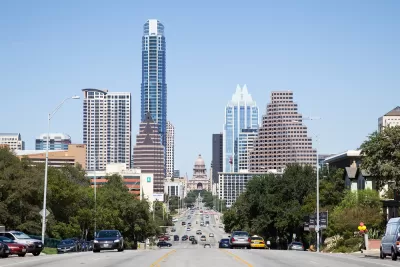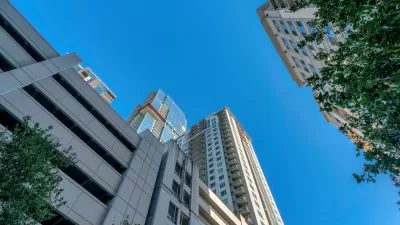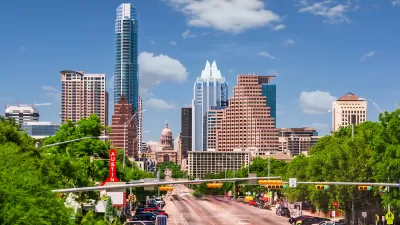The developer of a proposed affordable housing argues that minimum parking requirements will reduce the number of units or pass costs to tenants, Austin regulators expressed are worried about local parking supplies and access to public transit.

The city of Austin's Board of Adjustments postponed making a decision on a parking variance for a North Central Austin affordable housing development until they can gather more information, reports Elizabeth Pagano. "[T]he project at 8300 N. Interstate 35 is an 'unusual' conversion of a hotel into multifamily affordable housing" that is "being converted under a restrictive covenant that requires at least half of the units be affordable to those earning 60 percent or below the median family income," making it less likely that residents will own cars at the same rate as more affluent households. "To keep the project affordable, [the developer] was asking for an 18 percent reduction – 44 spaces – from what the city code requires." Board members expressed discomfort with approving the variance, citing concerns about local access to public transportation and street parking. "You have some very strong neighborhood opposition and I don’t think there is any nearby on-street parking," said Board Member Brooke Bailey.
Growing evidence suggests that parking requirements, often based on outdated models that no longer reflect the reality of urban dwellers, stifle affordable housing development in areas that need it most and are usually higher than the actual needs of residents. Cities around the country have begun to reevaluate their parking requirements and create more exemptions for affordable housing developers.
FULL STORY: BoA postpones parking variance for want of a better hardship

Study: Maui’s Plan to Convert Vacation Rentals to Long-Term Housing Could Cause Nearly $1 Billion Economic Loss
The plan would reduce visitor accommodation by 25,% resulting in 1,900 jobs lost.

North Texas Transit Leaders Tout Benefits of TOD for Growing Region
At a summit focused on transit-oriented development, policymakers discussed how North Texas’ expanded light rail system can serve as a tool for economic growth.

Why Should We Subsidize Public Transportation?
Many public transit agencies face financial stress due to rising costs, declining fare revenue, and declining subsidies. Transit advocates must provide a strong business case for increasing public transit funding.

How Community Science Connects People, Parks, and Biodiversity
Community science engages people of all backgrounds in documenting local biodiversity, strengthening connections to nature, and contributing to global efforts like the City Nature Challenge to build a more inclusive and resilient future.

Alabama: Trump Terminates Settlements for Black Communities Harmed By Raw Sewage
Trump deemed the landmark civil rights agreement “illegal DEI and environmental justice policy.”

Dear Tesla Driver: “It’s not You, It’s Him.”
Amidst a booming bumper sticker industry, one writer offers solace to those asking, “Does this car make me look fascist?”
Urban Design for Planners 1: Software Tools
This six-course series explores essential urban design concepts using open source software and equips planners with the tools they need to participate fully in the urban design process.
Planning for Universal Design
Learn the tools for implementing Universal Design in planning regulations.
City of Santa Clarita
Ascent Environmental
Institute for Housing and Urban Development Studies (IHS)
City of Grandview
Harvard GSD Executive Education
Toledo-Lucas County Plan Commissions
Salt Lake City
NYU Wagner Graduate School of Public Service





























